Celebrating the Fifth National CROWN Day: A Testament to Black Beauty and Brilliance
Celebrating the fifth anniversary of National CROWN Day, we reflect on the progress and ongoing efforts to combat race-based hair discrimination, marked by the inspiring CROWN Awards and vibrant social media advocacy. We discuss it here!
Today, July 3, marks the fifth National CROWN Day, a significant occasion commemorating the inaugural signing of the CROWN Act on July 3, 2019. This act, designed to "Create a Respectful and Open World for Natural Hair," has been instrumental in fighting race-based hair discrimination. This year, the celebration extends to the annual CROWN Awards, with a vibrant call to action encouraging everyone to join the movement and showcase #CROWNLove on social media.
The hallmark event of National CROWN Day is the annual CROWN Awards, presented by Dove. Hosted by Tai Beauchamp, the 2024 ceremony took place at the elegant Blackbird House in Culver City. This intimate gathering highlighted the extraordinary strength, grace, and impact of notable Black women and girls whose talents and leadership help advance the legacy of Black beauty and brilliance.
"Dove is proud to celebrate this major five-year milestone and all the progress made to end race-based hair discrimination in the U.S.," stated Tish Archie-Oliver, Head of Diversity, Equity, Inclusion & Belonging, Unilever NA. "While there is much to celebrate with 26 states and 50 municipalities that have passed CROWN legislation (or Executive Orders), there is still work to be done. We look forward to continuing to uplift Black women and girls and encouraging people to proudly showcase their #CROWNLove as part of this year's National CROWN Day celebration of Black hair independence."
This year's celebration is filled with inspiring moments and notable achievements. The 2024 CROWN Awards honored influential figures such as Emmy Award-winning actress Uzo Aduba, LA County Supervisor Holly J. Mitchell, Graceyn "Gracie" Hollingsworth of "Gracie's Corner," activist LaTosha Brown, and Eunique Jones Gibson, Founder and CEO of Culture Brands and The Happy Hues Company. Special guests included actress Tina Lifford, actress Yaya DaCosta, Olympian Ibtihaj Muhammad, Oscar Award winner Matthew A. Cherry, and actress Novi Brown. For the second year in a row, Dove will partner with the beloved digital children's series, “Gracie's Corner” to create a new custom short focusing on #CROWNLove. This initiative encourages Gracie's young audience to love and celebrate their hair.
On July 3, CROWN Award honorees, trusted messengers like Tabitha Brown, Dr. Raquel Martin, Tina Lifford, and others, along with national and local affiliate newscasters, will drive a swell of conversation with CROWN Day posts. They will encourage people to post photos of their natural or protective styles on social media using #CROWNLove. Visit Dove.com/CROWN to learn more about the CROWN movement and take action by signing the official CROWN Act petition. Be sure to tag @Dove, @TheCrownAct, and #CROWNLove on all CROWN Day celebration posts.
Formed in 2019 by Dove, the National Urban League, Western Center on Law & Poverty, and Color of Change, the CROWN Coalition aims to create a more equitable and inclusive experience for Black consumers through the advancement of race-based hair discrimination legislation. This coalition, strengthened by over 100 community organizations, works tirelessly toward real, actionable change. The CROWN Coalition was founded by a team of Black women, including Esi Eggleston Bracey, Adjoa B. Asamoah, Orlena Nwokah Blanchard, and Kelli Richardson Lawson. Their efforts have seen CROWN Act legislation (and/or Executive Orders) enacted in 26 states and 50 municipalities, positively impacting the lives of more than 30 million Black people in the U.S.
Significant progress has been made, with states like California, New York, and New Jersey leading the charge in 2019, and Vermont joining the ranks in 2024. A CROWN-inspired Executive Order is in place in Arizona (2023) and Kentucky (2024). The state of New Hampshire awaits the Governor's signature to become the 27th state with CROWN protections. While these achievements are commendable, the journey continues. The fight against race-based hair discrimination is far from over. The CROWN Coalition remains committed to advancing this cause, ensuring that every Black individual can wear their hair with pride and confidence.
As we celebrate National CROWN Day, let's remember the power of unity and the beauty of diversity. Together, we can create a world where natural hair is celebrated and respected. Join the movement, share your #CROWNLove, and let's make a lasting impact.
YOU MAY ALSO BE INTERESTED IN:
SHARE TO SOCIAL MEDIA
Navigating Being the Only Black Person in the Workplace
In many professional and social settings, being the only Black person in the room can be an isolating and challenging experience, but it also offers opportunities for growth, advocacy, and leadership. We discuss it here!
By: Jamila Gomez
In many professional and social settings, being the only Black person in the room can be an isolating and challenging experience. This situation is not uncommon in various industries and institutions where diversity is still a work in progress. Navigating these environments requires resilience, confidence, and a proactive approach to addressing both the overt and subtle challenges that arise. This article explores the complexities of being the only Black person in the room and offers strategies for coping and thriving in these situations.
The Emotional Landscape
Being the only Black person in a predominantly white or non-Black environment can evoke a range of emotions, from pride and determination to stress and fatigue. Some common experiences include:
1. Visibility and Scrutiny
Often, Black individuals may feel hyper-visible and under constant scrutiny, leading to pressure to perform perfectly and avoid mistakes.
2. Isolation and Loneliness
The absence of peers who share similar cultural backgrounds can result in feelings of isolation and a lack of belonging.
3. Microaggressions
Subtle, often unintentional, discriminatory comments or behaviors can accumulate, causing emotional distress and frustration.
4. Tokenism
Being perceived as a representative of an entire race rather than as an individual can be burdensome and limiting.
Strategies for Thriving
1. Building Confidence and Self-Awareness
- Know Your Worth: Recognize your qualifications, achievements, and the unique perspectives you bring to the table. Your presence is valuable.
- Develop Self-Awareness: Understand your own triggers and responses. Reflect on your experiences and how they shape your reactions and interactions.
2. Creating and Seeking Support Networks
- Find Allies: Identify colleagues or peers who can offer support, understanding, and advocacy. Allies can help amplify your voice and stand with you against bias.
- Join or Form ERGs: Employee Resource Groups (ERGs) focused on Black professionals can provide a sense of community, mentorship, and shared experiences.
- Mentorship: Seek mentors within and outside your organization who can offer guidance, advice, and support.
3. Addressing Microaggressions and Bias
- Speak Up: When encountering microaggressions, calmly address them by explaining how they impact you. Use “I” statements to convey your feelings without being confrontational.
- Educate: Sometimes, people are unaware of their biases. Educate them gently but firmly about the impact of their words or actions.
- Report When Necessary: If microaggressions persist or escalate, consider reporting them to HR. Document incidents to provide a clear account.
4. Self-Care and Mental Health
- Prioritize Self-Care: Engage in activities that replenish your energy and reduce stress, such as exercise, hobbies, and spending time with loved ones.
- Professional Help: Consider therapy or counseling to navigate the emotional challenges and develop coping strategies.
- Set Boundaries: Protect your mental health by setting boundaries around how much emotional labor you’re willing to undertake in educating others.
5. Leveraging Your Unique Perspective
- Contribute Authentically: Share your unique insights and perspectives that come from your lived experiences. Diverse viewpoints are crucial for innovation and problem-solving.
- Leadership and Advocacy: Use your position to advocate for more inclusive practices and policies. Encourage your organization to prioritize diversity and inclusion initiatives.
Creating Systemic Change
While individual strategies are crucial, systemic change is necessary to address the root causes of these challenges. Organizations can play a significant role in creating more inclusive environments. Here’s how:
1. Diversity and Inclusion Initiatives
Implement comprehensive diversity and inclusion programs that address recruitment, retention, and advancement of Black professionals.
2. Bias Training
Regularly conduct bias and sensitivity training for all employees to foster a more understanding and respectful workplace culture.
3. Representation Matters
Strive for greater representation of Black individuals at all levels of the organization, including leadership roles.
4. Open Dialogue
Encourage open conversations about race and inclusion, providing safe spaces for Black employees to share their experiences and concerns.
Being the only Black person in the room comes with unique challenges, but it also offers opportunities for growth, advocacy, and leadership. By employing personal strategies and advocating for systemic change, Black individuals can navigate these environments more effectively and contribute to creating more inclusive and equitable spaces. Building confidence, seeking support, addressing bias, and prioritizing self-care are essential steps towards thriving in any professional or social setting.
YOU MAY ALSO BE INTERESTED IN:
SHARE TO SOCIAL MEDIA
Crutches & Spice: How Activist Imani Barbarin is Changing Narratives Through TikTok
Imani Barbarin, known as @crutches_and_spice on TikTok is one of disability activism’s leading voices. Her popular videos begin with a single objective: having uncomfortable but productive conversations about the lack of intersectionality within social justice movements, and more particularly, the disability sphere. We discuss it here!
Imani Barbarin / Credit: Hannah Price
By: Alexis Oatman
Funny. Charismatic. Outspoken. That’s how some people may describe Imani Barbarin, one of disability activism’s leading voices. Barbarin, known as @crutches_and_spice on TikTok, always begins her popular videos with a single objective: having uncomfortable but productive conversations about the lack of intersectionality within social justice movements, and more particularly, the disability sphere. For instance, in one of her most recent videos, Barbarin explains how white people pick and choose when to be in solidarity with BIPOC, treating allyship as an option that can be revoked anytime. “If you’re not nice while asking for it, they have the option to tap out,” she says in the video. “Racism for them is a special interest; racism for you is your life.”
Barbarian has a keen knack for making challenging conversations digestible and accessible, whether she’s discussing ableism and white supremacy or pop culture. Though she may not be a formal educator, she’s still offering vital lessons. Her dry humor, which shines in every video, helps her message resonate, which is one of the reasons she’s garnered 150,000 followers and 6.4 million likes on TikTok and more than 100,000 followers on Twitter. During the past 16 months, TikTok broadened its reach through challenges and other entertaining bits, keeping more than 100 million users engaged throughout the pandemic and allowing some Black creators, including Barbarin and food influencer Tabitha Brown, to reach even new audiences.
As a fat, black, queer, disabled woman, her using her platform in this way is not only unheard of and long overdue. Barbarin has often pointed out how Black voices are silenced in this realm. However, this is nothing new for Black people: While we’re often the first people on the frontline to fight against inequality, our voices are often washed out by our white counterparts in what are supposedly “safe spaces.”
Navigating through multiple identities at once allows her authenticity to shine through and is why I think she connects so well with her fans.
Though Barbarin, who works as a communications manager, has been working within the disability movement for quite a long time, she knows all too well how Black people are intentionally silenced when they call out racism, homophobia, and ableism within the movement—and she now has the platform to push back.
Presently, the internet and social media have become an integral part of shifting cultural lexicons. Social media stars have been able to capitalize off their platforms and build an audience representative of whatever they choose. However, when we think of the phrase “influencer,” we need to think more profoundly about what these people are influencing the public to do. The content Barbarin is making opens up the space allowing allies and BIPOC to have those open and honest dialogues, but she does in as little as 15 seconds with her videos that are available for millions to share (and they do) with the touch of a finger.
Barbarin recently spoke out against Britney Spears and the controversy around her 13-year-long conservatorship in another TikTok video, noting the gaslighting that members from the disabled can feel from the non-disabled community. Spears conservatorship has opened up the gateway to conversations about how disabled people are treated and perceived in society.
“Nobody’s saying her situation is not horrific, but it’s not unique,” she says in the video. “This is something disabled people are scared of all the time.” she says in the video. Barbarin went on to explain how there can be many occurrences in which disabled people end up asking the wrong question "to the wrong person and wind up in a conservatorship or guardianship."
She made it clear that while the critics are dissecting the Spears situation and holding it up as some shocking example of celebrity injustice, "this could literally happen to anybody with a mental health diagnosis or not."
Barbarin’s now facing immense harassment, including being called racial slurs and being doxxed by trolls. Being a Black woman on the internet in the current social climate can be terrifying, especially if you’re strong-willed and have something to say. While Barbarin’s conversations prove necessary, it's not only sickening to the amount of abuse this opens her up to. These social media platforms often work as a breeding ground for racism, misogyny, and homophobia, allowing many of these troll accounts to go unchecked.
This shouldn't be surprising, though, unfortunately, Black women are among the most abused group on Twitter, according to data from Amnesty International, a global human rights organization based in the UK. Their data found that nearly 84 percent of Black women were more likely to be disproportionately targeted than their white counterparts. At least one in every ten tweets mentioning Black women was found to be abusive or problematic, compared to one in 15 for white women.
With her sheer will allowing her to push forward and continue making content despite harassment, Barbarin has made it abundantly clear that her identities are not optional and that the world needs to see and recognize her as a Black disabled woman.
By not identifying those things, people are not only marginalizing her experience but also putting her in harm’s way. “It’s important that people see and affirm me as a Black disabled woman because I have to move about in the world as such. By not recognizing those things, people are either isolating me or putting me in danger,” she said in a recent statement with VICE. “People who have never had to place qualifiers in their identity have never had to form a community to survive. People love to believe they aren’t defined by our identities or what we present to the world, but by the same breath with which they decry labels, we are able to find people who share ours.”
While many women on social media simply ignore trolls, this harassment can lead some to silence themselves or quit the platform altogether. A joint statement by the United Nations Special Rapporteurs on Violence against Women and Freedom of Expression revealed that the abuse women receive online can "chill and disrupt the online participation of women journalists, activists, human rights defenders, artists and other public figures and private persons."
Poet and author Maya Angelou describes courage as one of the most important of all virtues. Why? "Because without courage, you cannot practice any other virtue consistently," Angelou said. "You can practice any virtue erratically, but nothing consistently without courage." Barbarin has demonstrated courage not only in her existence but in her work. To grow as a society and get to the point of being post-racism, post-homophobia, and so on, we need to have those tough conversations. These types of discussions open minds and allow a realistic chance for growth. The best way to do this is by meeting people where they are.
Barbarin not only builds off her experience and expertise in communications to appeal to a broader audience, but she’s changing the narrative of how we view disability and open people’s eyes to the prevalent casual ableism in society today.
Barbarin’s capacity to stand so firmly in who she is, without fear or shame, is inspiring millions, and for a good reason. The social media star recently signed with a talent agency, so she’ll continue influencing people to think differently about how disabled people of color are excluded from the very movements intended to improve their lives. Barbarin is one of the most critical voices in the modern fight against injustice, and her millions of followers, myself included, we’ll be tuning in every step of the way.
YOU MAY ALSO BE INTERESTED IN:
SHARE TO SOCIAL MEDIA
Protecting Black Women: Addressing Colorism Issues And Abuse
Colorism and abuse is alive and well in the Black community and it’s necessary for these issues to be addressed! We discuss it here!
By: Kwana Adams
Sometimes the only people black women have to take care of them are other black women. The hashtag #sayhername was born from black women because of black women being neglected, and put to the side when it comes to social issues such as police brutality, domestic violence and anti-black acts of violence.
The hashtag was a movement created to shed a light on the fact that black women’s issues are often sidelined. Some notable names from this hashtag are Sandra Bland, Rekia Boyd, and Breonna Taylor. However, there are countless stories that are not being told or are not given enough recognition and care as other stories.
A rapper by the name of Talib Kweli has been harassing a black woman online and has not stopped for almost a year. Even being banned from Twitter did not stop that man from his continued harassment which he simply continued on Instagram. He has also talked about her on shows and in interviews continuing to make himself the victim.
The woman he has been harassing goes by @Moneyymaya on Twitter and a harmless tweet caused almost a whole year of targeted harassment from a black man who took the tweet personally. Talib was only one of many other black rappers named but was the only one to take it to this extreme. The tweet was a brief mention of colorism and how black rappers perpetuate and uphold it in the black community. It was a very valid opinion and something that could have possibly been addressed in a more respectable matter had Talib not instead decided to target Maya relentlessly.
Colorism is alive and well in our community and it does deserve a spotlight. However, the potential conversation was overshadowed by a man who got his feelings hurt. As a community, we should be addressing this a lot more and holding black men accountable for the abuse they inflict onto black women.
Followers and supporters of Talib Kweli have also been harassing Maya, threatening her family, sending threats of rape and death, and even doxxing her family members. Kweli and his supporters have even gone as far as to harass people who have spoken up in support of Maya. He took to Instagram that rapper Noname compared him to Tory Lanez, a rapper who allegedly shot another black woman, Megan Thee Stallion in both feet.
Maya has endured threats to not only her livelihood but her family’s the same way Megan has become a topic of ridicule and speculation on social media. Noname has also been slandered in the process of trying to protect black women. None of these women deserve what they’re going through. They deserve to be protected and they deserve to be heard.
Since Maya was told by lawyers that there’s not much of anything that can be done of the harassment, she’s been documeting the whole ordeal in Twitter threads amd letting everyone know tha if something happens to her, it’s because of this incident and the poor way it’s been handled. Other black women have been targets as well for sticking up for her. My question is, why is it that the majority of people coming to her defense are black women? Will everyone hear us only when it’s too late, and even then, will anyone protect us? How has this man been able to get away with openly harassing women for almost a year nonstop?
Please follow this story for your own research because there are still so many things that I did not mention in this article. Black women don’t always have to be “strong” and it’s that that kind of responsibility put on us that makes it hard for us to get justice in situations such as this. Talib Kweli, Tory Lanez, and other harmful men need to be stopped. They need to be held accountable for the harm they cause black women and it shouldn’t only be up to black women to do it. Say our names and tell our stories.
YOU MAY ALSO BE INTERESTED IN:
SHARE TO SOCIAL MEDIA
It's Time For Better Portrayals of Black People on Television and in the Media
The world so often tries to fit Black people into one box, with Hollywood continuously putting out trauma porn and Black people being represented as gangsters, slaves, or in extreme poverty. It’s time to create better narratives for ourselves! We discuss it here!
By: Kwana Adams
The world so often tries to fit black people into one box, and quite frankly, some of us are guilty of stuffing each other into that box as well. Why do we do this? Why can’t black people be multifaceted and unique?
We don’t have to be embarrassed or ashamed of having interests that don’t fit into the black stereotype. We’re not ‘Oreos’ because we like a certain genre of music or watch anime. We’re allowed to enjoy these things as much as anyone else. We can dress the way we want to too.
Personally, I’d love to see more people walking around in ballgowns and Victorian-era clothing. I’d love for the disco era to come back well. Most of all, I just want to see black people being happy and being themselves without judgment. I also want to see black people building and creating together.
As an avid reader and writer, I’m tired of black people not being represented enough in books and film or only being represented as gangsters, slaves, or in extreme poverty. One day we need to have a conversation about how Hollywood portrays the ‘hood’ but for now, let’s discuss how we can represent ourselves differently.
I want to see us in chick flick-teenage drama movies and not just as the friend with one witty line. I want us to be fairies, superheroes, vampires, spies, etc. I want us to be the main characters. I know it’s a lot easier said than done, but we’re gonna get there. I know we’re well on our way with more tv shows with black casts are coming out. The effort is there, but we can still do better. Before we can do all of that, we need more black creatives. If we’re writing the scripts, directing, producing, etc., we can represent ourselves better than anyone. We can write ourselves in way more beautiful lights.
We need to start investing in each other, creating our own studios, publishing houses, etc. No longer do we need to worry about getting a seat at the table. We need to start building our own homes brick by brick and making our own tables. It’s time. Creating generational wealth isn’t just about piling money away for your children but also about making something that you can leave for them and others in your community.
Have you ever heard the phrase, “it takes a village?” I know it applies to raising children, but I’m applying it to black-owned communities and creative enterprises. It takes a village to build something that will enable us to leave something behind for the next generation. I want to make sure my future children are all set, but I also want to instill in them the value of working together. I am tired of the ‘every man for himself’ mindset. It doesn’t help us at all. It might feel good to get everything on your own but working with others is so rewarding. The point is, you don’t have to do it alone when you can do it together.
To wrap it up, I really want black people to feel comfortable enough in their own skin to be themselves. I’m talking about black women, black men, black LGBTQ+ people, black disabled people, etc. I’m talking about all of us. It’s okay for us to be ourselves, be silly, be imaginative. I also want for us to be represented this way in media. Trauma porn is played out, and to be honest; it’s really not even for us.
We already know slavery was gruesome and worse than what they taught us. We don’t need to keep being traumatized by black people being shot and brutalized by police or by black people being whipped or mistreated. We need comedy; we need romance; we need movies that make us laugh or just make us feel damn good! It’s about time we get that. This is the future that I’m striving for, so please don’t get in my way.
YOU MAY ALSO BE INTERESTED IN:
SHARE TO SOCIAL MEDIA
Disrespecting Black Women Is An Easy Way To Gain Social Media Clout
Disrespecting Black Women has become an easy way to gain social media clout, specifically through tik tok! We discuss it here!
Disrespecting Black Women Is An Easy Way To Gain Social Media Clout
By: Kwana Adams
Have you been having trouble promoting yourself and your work on social media? Are you just not getting the clout that you feel you deserve? It’s difficult making yourself known when so many others are trying to do the same thing but there is a way to get around that. There’s a great way to boost your online presence and make you an overnight sensation!
If you want to gain clout quickly without ANY effort and hard work, just start talking shit about black women unprovoked! This method has been proven time and time again to be effective. Let’s take that recent video for example. You know the one I’m talking about so I don’t even need to link it here. A man with an unwashed ass and an opinion nobody asked for decided to make a Tik Tok where he claimed he’d rather go blind than date a black woman.
Black women really just be minding our business and here comes this.... pic.twitter.com/HvQmGsZHLC
— NaijaBabe🇳🇬 (@eberelovesyou) March 11, 2021
Of course, the video spread rapidly. Most videos of that nature usually do. Not only did this man have the absolute nerve to use a song sung by two talented, successful and beautiful black women to disrespect black women, he then created another video where he tried to explain the original. In this video, that again, NOBODY asked for, he claims that he wasn’t hating but he’d rather go blind than marry one of “your kind.” As he says this, he also acts out “vomiting” and whispers “disgust me”. What’s crazy is, he is one of “our kind.” No sir, YOU disgust ME.
This brings me to my next tip on how to gain internet clout. If you are a black man, or a man of color, who is trying to gain internet clout, this method is definitely for you. Self hating black men and anti-black men are the most successful in gaining clout when they shit on black women. Make sure your opinion was unprovoked, and don’t forget to profess your love for “snow bunnies” and “spicy latinas” because we all know you can’t have a preference if you don’t talk about how much you hate Black women first!
Now, I’ve personally seen ‘that’ video on my Twitter timeline multiple times in just a day so I imagine the Cinnamon stick from the Apple Jacks commercial must be seeing all of the comments, RTs and quote replies. Checking the comments, I discovered that this man is a tattoo artist and a musician. Suddenly, it all makes sense… This is probably what he wanted all along.
He made sure to record himself lying next to a white woman to really get the people talking. I’ve scrolled past this video and responses to it multiple times in less than an hour, so I’d say he executed the method very successfully. The fact that I’m even writing this article proves this as well!
In all seriousness, stop using black women to gain clout. It’s old, it’s tired, and quite frankly, it’s very lazy. Black women are constantly just minding their business and having to be reminded that men, especially black men, are looking down on them. The same things that other races of women get praised for, black women get abused for.
You can have your preference without bringing up black women. It’s really that simple. The 15 minutes of fame you’re getting are not worth disrespecting a group of people who didn’t do a damn thing to you. Let us exist in peace and keep us out of your mouth.
YOU MAY ALSO BE INTERESTED IN:
SHARE TO SOCIAL MEDIA
Young Black Men Are Dying At Unproportional Rates: A Discussion
From ages 15 to 24 years old, Black men experience peak numbers of premature deaths due to homicide and suicide. Why are young Black men dying in unproportional numbers? We discuss it here!
(Top Left to Bottom Right) - Ahmaud Arbery, Tamir Rice, Trayvon Martin, Kendrick Johnson
By: Raki Jordan
I don't think society really wants to know the disproportional deaths of Black men; if so, there would be an outrage in why there's no mention of it. Even I was reluctant to write about this disposition, though, it isn't because of willing ignorance, but a sudden fear that I might be next in line to see the face of Death.
So, let us talk. I've lived on Earth for a little over two decades and lost five Black men I grew up with from homicide—all under the age of 21 years old. What's alarming is that if you ask around, the majority of Black people know, are related to, or know someone who knows or is related to a Black man who had been murdered.
According to The United States Census Bureau, Black women make up 50.75% out of the entire Black population in the U.S; despite Black men being born more often. What this doesn't tell you is that the population of Black men starts declining as they get older. By the ages between 40 to 44 years old, Black women start outnumbering them (this doesn't even account for them outnumbering Black men, not just by being alive, but also, from Black men being incarcerated). This puts the average age of Black men to be 32.5 years old (or 33 if you round), with a life expectancy of 68.8 years of age, compared to the life expectancy of White men at about 74 years old.
Now, how might this be? From 15-24 years old, Black men experience a peak of premature deaths due to homicide and suicide. According to the American Association of Suicidology (AAS), in 2014, 2,421 Black people died by suicide, with Black men making up 80.38% (1,946) of these suicides. And the numbers are increasing each year. In 2018, the number of Black male suicide was 2,578, with guns being the go-to method to kill themselves (this is also a common method among Black women); making suicide the 3rd leading cause of death of Black men between 15-24 years old.
With homicides, Black men are 15 times more likely to be murdered than that of White men. This accounts for Black males ages 1-19 years old to make up 35.2% of homicide victims. And ages 20-44 years old accounting for 28.9% of homicide deaths. Which makes homicide the number one leading cause of death for Black men 15 to 34 years of age; this is according to NVSS (National Vital Statistics Reports) 2016 report on leading causes of death.
The top causes of death for young Black men, based on a study from Michigan, Rutgers, and Washington University are:
Accidental death
Suicide
Homicide
Heart Disease
Cancer
Police Brutality
The numbers pertaining to the premature deaths of Black men are going to increase. By society not recognizing the increasing epidemic among Black men, there's going to be a further decline in the population of Black men in America. To elaborate further, society must look at what is contributing to the premature deaths of Black men, and eliminate the existing problem. And one way to slow down the rate of suicide is to express Black men by showing uplifting and positive imagery and influences. And to decrease the murder of Black men, violence within the Black community will have to be met with the eradication of poverty, that majority of Black people fall under. This, will then, dismantle the nature of the kill or be killed mentality many young Black men face walking the streets. This isn't mentioning underdeveloped American police force, that isn't trained to handle urban areas.
YOU MAY ALSO BE INTERESTED IN:
Sex Trafficking Is A Real Crisis: Why Are Black Women Under Attack?
Sex trafficking is a real problem and African American women make up the highest percentage of victims. Why are Black Women under attack? We discuss it here!
By: Omar Cook
We’ve been hearing this issue of human sex trafficking and also an influx of Black girls coming up missing. The 2 issues go hand in hand. Sex trafficking is a real problem and African American women make up the highest percentage of victims.
According to the FBI, Black women make up 40 percent of all sex trafficking victims in the US while according to the US Census Bureau, African Americans only make up 13.1 percent of the population. Even WORSE, Black girls make up 55 % of all prostitution-related arrests in the U.S. The numbers are sick. There are a few reasons why the arrests of Black girls are so high.
Sex trafficking is forced slavery, which involves women being forcibly kidnapped and sold as sex slaves. Sex trafficking also involves the coercion and exploitation of women who come from poor or inadequate support systems. Underaged girls in low income environments are being taken advantage of and used for prostitution. Instead of receiving actual help, the women are arrested and judged as prostitutes, which is the reasoning for the high arrest records of Black girls. Underage Black girls being sold for sex are not criminals, they are victims. Why is it that the criminal justice system is faster to label these women as criminals rather than giving them the help that they need?
One high profile example of this is the case of Cyntoia Brown, who at 16 years old, was sentenced to life in prison for killing a 43 year old man who she feared was about to take her life, during a sexual transaction. Brown was eventually released after 15 years last year after being granted clemency, but how many other Black girls are in a similar situation that is not gaining national attention?
Cyntoia Brown
In 2018, the Black and Missing Foundation reported that roughly 64,000 Black women and girls went missing. 64,000.
“African American youth are at increased risk for domestic minor sex trafficking, with being female, living in an urban area, and experiencing abuse prior to trafficking all being factors that are associated with risk for sex trafficking. Of the over 300,000 minors in the U.S. who are victims of domestic sex trafficking, it is estimated that 43 percent are African American girls,” according to research by Thema Bryant-Davis, PhD., of Pepperdine University.
In 2017, there were mass reports of Black girls going missing in Washington D.C. “A few years ago, around 80 girls in Washington, D.C., went missing in a month, and it was crazy to me that nobody was talking about this. I started doing research and couldn’t find anything about it,” said Imani Blair, a rapper from Virginia. “Nobody was talking about it. No news was talking about it; and that made me feel some kind of way. And the more research I’ve done it, the more I’ve learned that this is a really big problem in our community.”
Sex trafficking is a major issue around the world, and it has no color boundaries, but the facts are real; Black women have been a major target. Sex trafficking is directly related to billion dollar money making industries which include, pornagraphy, prostitution, and the simple fact that there are men out there that are willing to purchase women as sex slaves and be held against their will. The porn industry continues to grow as the internet evolves and what’s crazy is that you have no way of knowing whether the video is consensual or not from the participant. As the demand for sex related entertainment increases, the demand for participants will also increase, and what’s a better to save money than by gathering “free” participants? Think about that.
It is imperative that we begin to closely watch out for women in our community and in our home. Women should be aware of their surroundings at all times, not walking around paranoid, but aware. Always try your best to not walk alone at night in poorly lit areas and keep your phones charged. Be careful taking Ubers or Lyfts and let someone know every time you get inside of transportation that is not yours.
As a Black male with 4 Black sisters coming up under me, hearing stories like this makes me more cautious of their safety. We should not have to live our daily lives worrying about issues like this, but unfortunately, this has become a true reality. Be safe.
National Human Trafficking Hotline
1 (888) 373-7888
SMS: 233733 (Text "HELP" or "INFO")
YOU MAY ALSO BE INTERESTED IN:
SHARE TO SOCIAL MEDIA
Why Do Black Men Belittle Black Women To Justify Dating White Women?
Interracial relationships are commonplace in America now, but why do some black men feel the need to belittle black women to justify dating white women? We discuss it here!
By: Omar Cook
There is absolutely nothing wrong with dating outside your race, lets get that out the way before y'all twist my words. This is modern day America, where a melting pot of cultures from around the world mesh together. Sure there are still issues between races, but this is 2018, interracial dating has truly become commonplace. Dating outside of your race which was frowned upon once upon a time in America, is now something that you see everyday. Interracial dating is not the problem.
The issue at hand is that there are certain black men that will belittle black women to justify dating outside of their race. Why do you even have to say anything negative about black women? First of all, no one cares that you date who you date, just go about your business. Black women will find someone that loves them regardless of who your preference is. If dating a white woman or whoever, makes you happy, by all means go for it. Black women are already under appreciated as it is, so for black men to be the ones putting them down, it's extremely ignorant.
>> SEE ALSO: Abolishing the N-word: A Personal Experience
I have heard a variety of reasons from my counterparts about why they won't date black women and here are a few of them:
Black women are loud and angry
Black women can be controlling
Black women have bad attitudes
Black women don't put out like other women of other races
How ridiculous does this stuff sound. To me, it sounds like certain black men want someone they can easily control and fetishize over them, and they know black women aren't going for that. You come from a black mother, a black family and still find a way to devalue your own people. It's okay to love who you love, but it's possible to appreciate black women while dating outside your race.
This definitely goes deeper than just dating white women though. Certain black men have an obsession for dating "foreign" women, a preference that keeps them close minded to dating black women in general. We've all heard the phrase "if it ain't foreign, it's boring." Why do we have this type of preference? Having certain preferences in women you date is cool, but choosing women just because they're foreign or white is high-key weird. Just because they're "foreign" does not mean they aren't coming with the same baggage and issues that you believe black women bring.
>> SEE ALSO: Why Afrofuturism Is A Fierce Instrument Of Black Empowerment And Liberation
Black men have to do better with valuing our own women instead of putting them down. Like what gratification does it give you to talk down on black women just to say you only date a certain race of women or you have a preference? What good comes from that? We really aren't too far removed from a period in time where black men were getting lynched and castrated for even talking to white women, now that's your only preference? Ignorance is an abundance right now and black men need to wake up and realize how stupid you look putting down your own women.

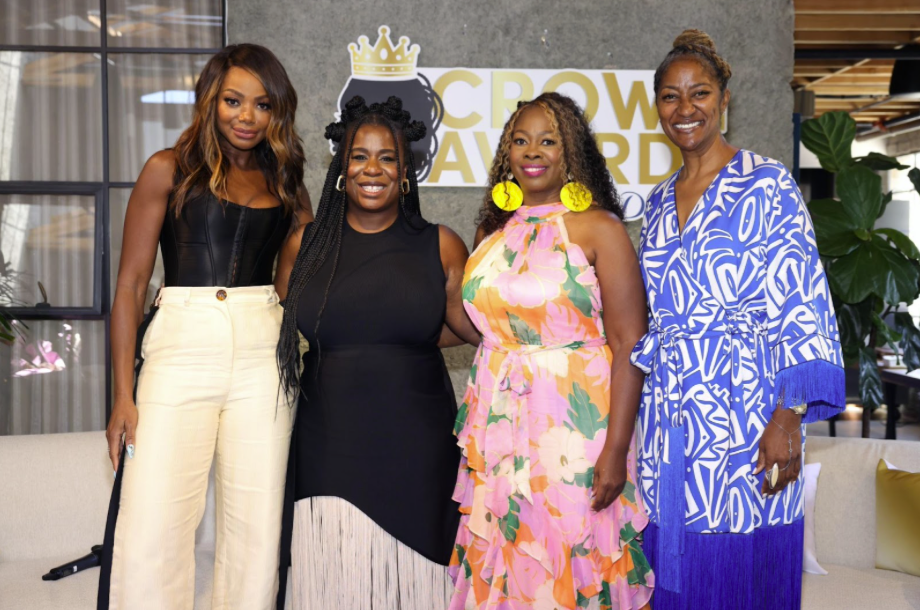


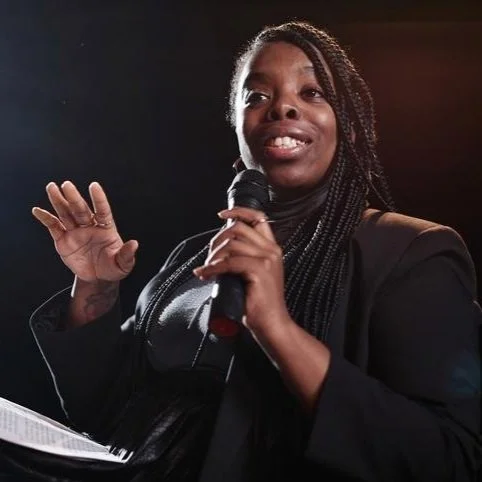
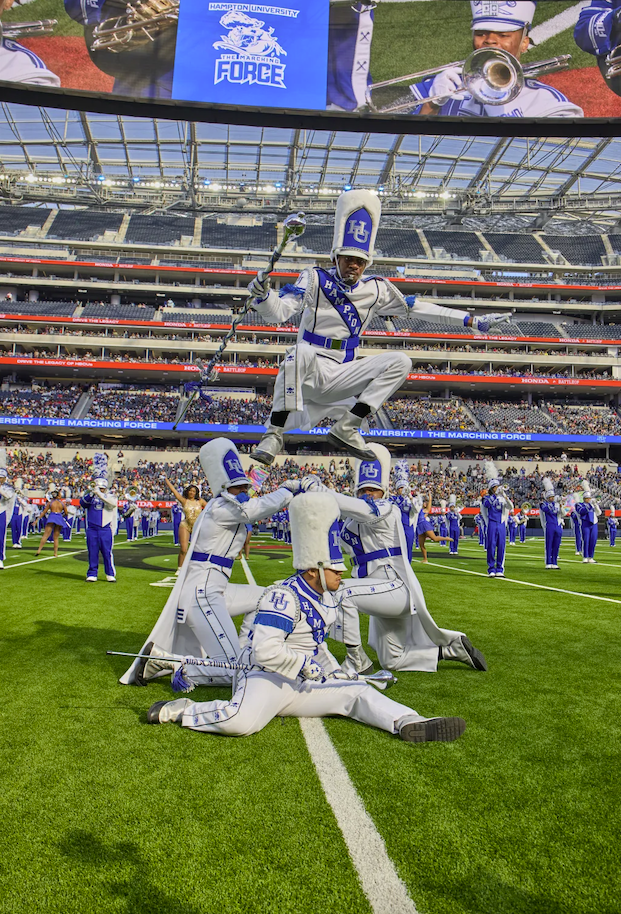
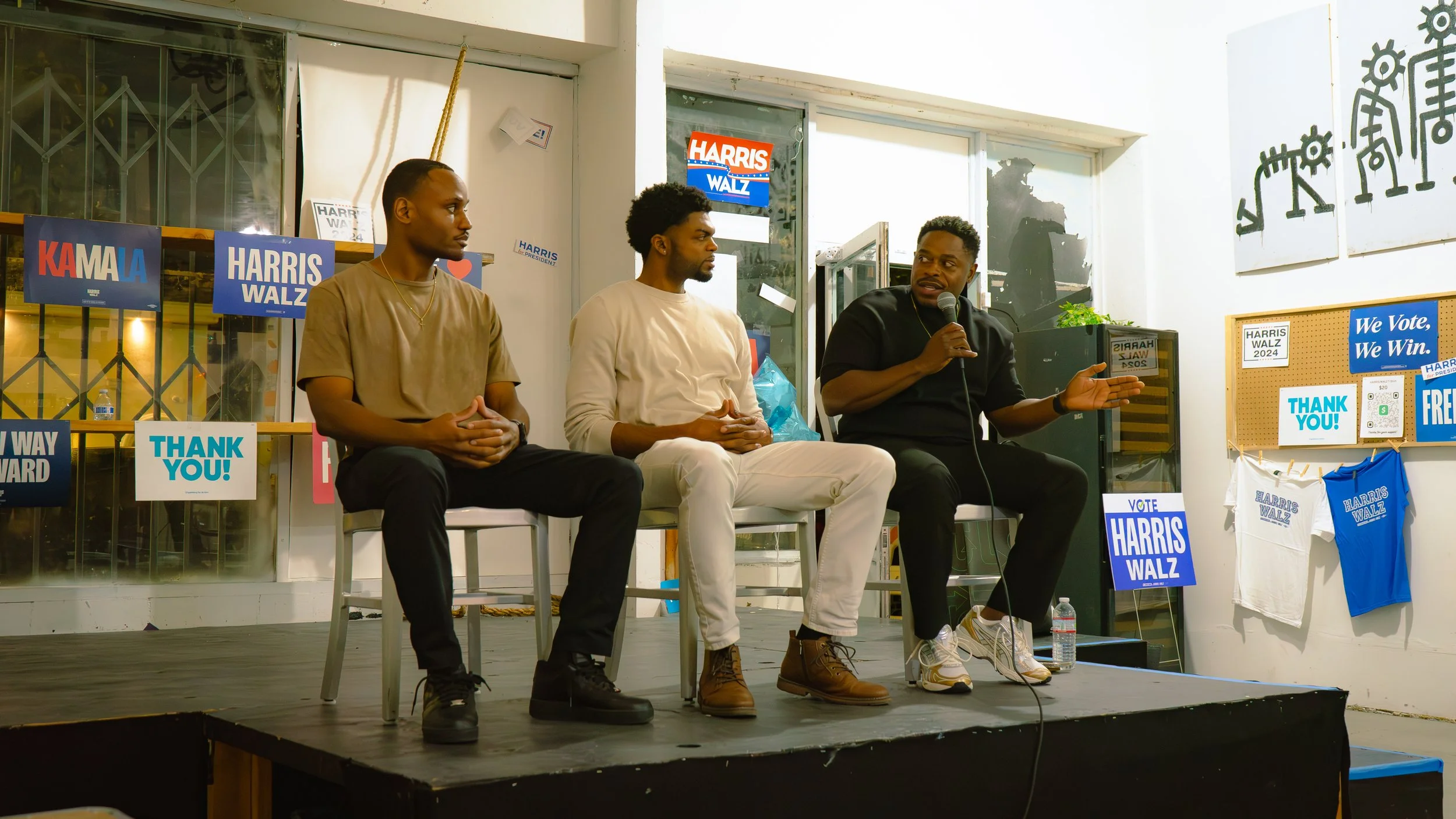
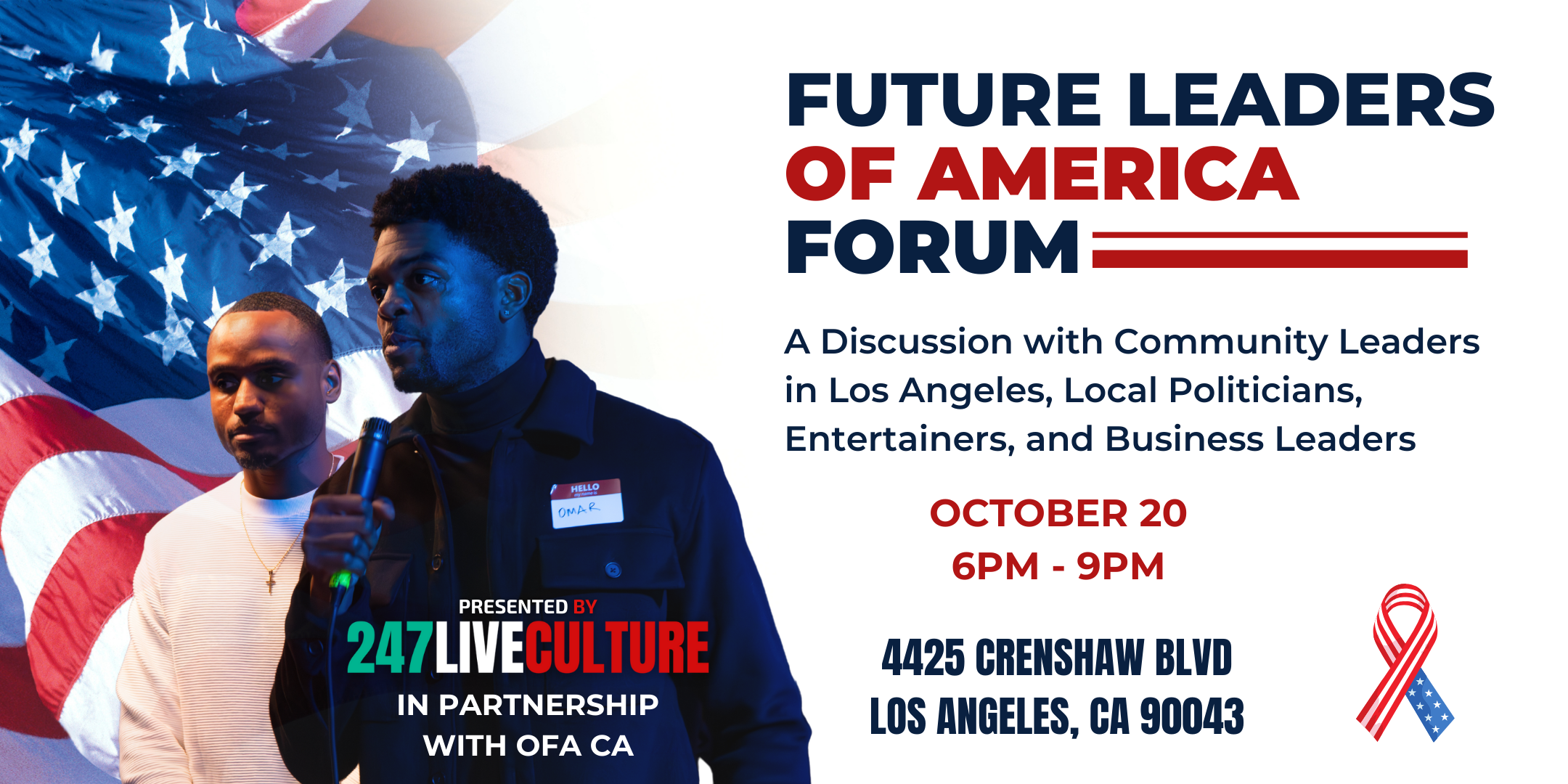













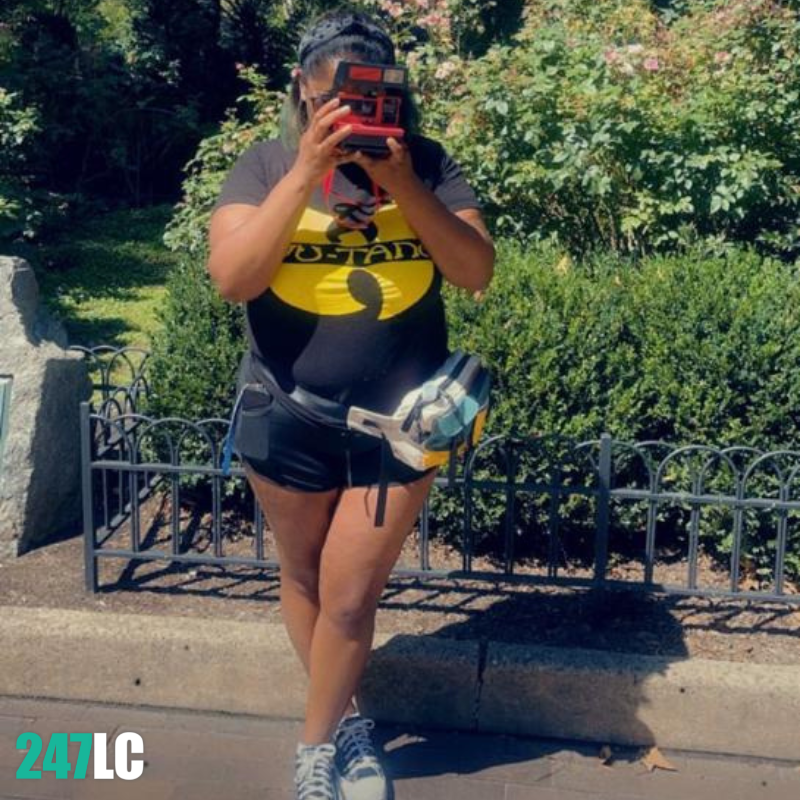














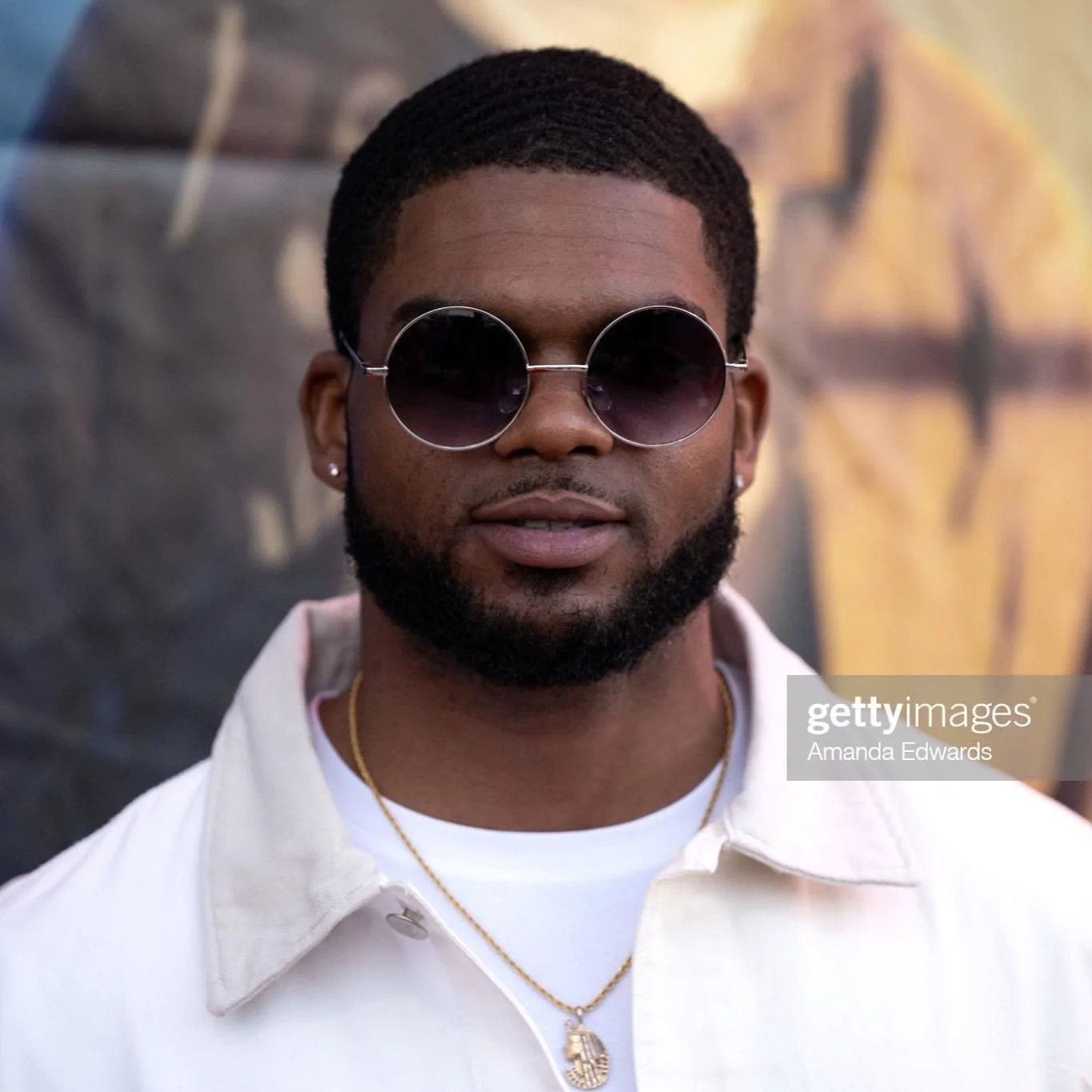


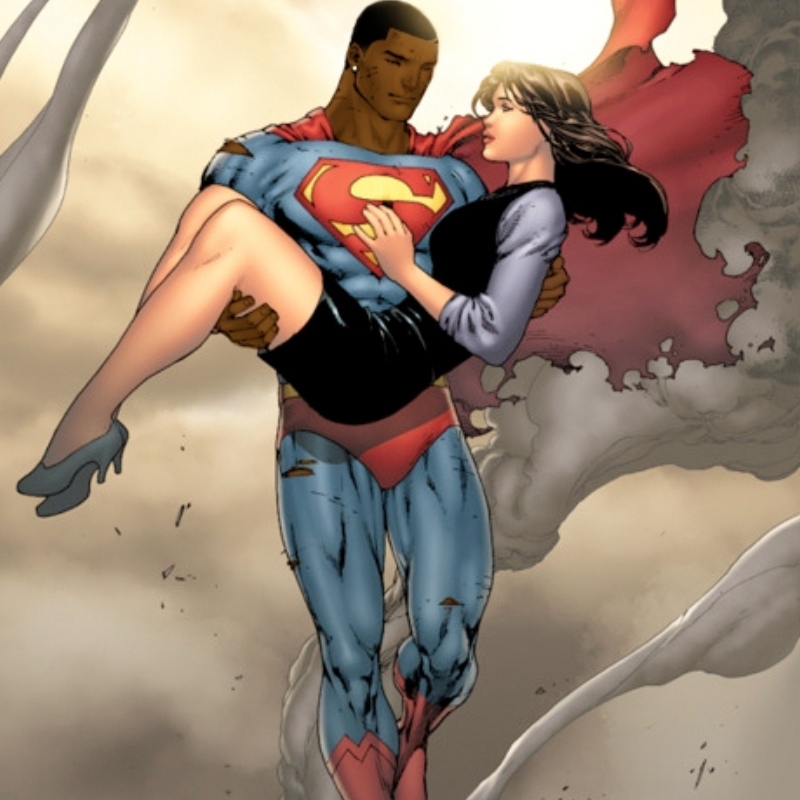
Meet Sharmaine Johnson, Media Correspondent for 247 Live Culture!
Email: Sharmaine@247LCTV.com